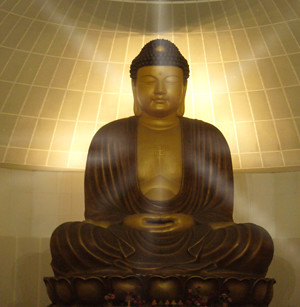Self Love Series: Love Yourself Teachings By Buddha
 “You, yourself, as much as anybody in the entire universe, deserve your love and affection.” – Buddha
“You, yourself, as much as anybody in the entire universe, deserve your love and affection.” – Buddha
An important core teaching in Buddhism is self-love. Buddha teaches that you love the self before extending the love to others. In other words, before you are able to be a love luminary, you must have the capacity to embrace yourself fully. Today being Vesak Day, let’s celebrate Buddha’s teachings about love.
Buddha observes, “you can travel around the world to search for someone more lovable than yourself, and yet that person is never to be found.” In other words, the search is not external but internal. You first find it from within. To love the self is to be in continuous connection with your true essence. You learn to accept, appreciate and affirm who you are.
Unconditional love and compassion are divine qualities of your intrinsic nature. When you connect from the inside, you experience the unfolding of wisdom. An inability to experience true self-love leads to love as something conditional. You love yourself if and only if you fulfill a certain expectation of the self. Your love for others also becomes conditional. Clouded by filters and perceptions, the ability for true knowing of the self and others become lacking.
Self-realization is key. This means that you are to awaken into love on an experiential basis. You are to actualize it with your own experiencing. As it has been often pointed out, “the finger pointing to the moon is not the moon”. All in, Buddha’s teachings involve an existential approach, rather than through fuzzy understanding via a religious abstraction.
From self love, you lay the ground for the expression of compassion for others. You tune into the sense of shared humanity. You recognize that others are no different from yourself. Everyone is going through essentially the same pain and sorrow – regardless of the specific packagings of external circumstances. You extend to others what you would extend to the self. By opening your heart, you gain a gentle-yet-powerful connection with all others.
Loving the self enhances your ability to send metta, generating energy that is real, pure and transformative. Many Buddhists practice the sending of metta in their prayers. The Buddha shares insightfully, “”Hatred can never be ceased by hatred; it is ceased by love alone.”
Metta is the radiation of loving kindness towards all beings. The wish is this: may all beings be well and happy. True metta is a warm feeling of generosity, compassion, abundance and love that extends beyond all human-imposed boundaries (such as political, racial, social and gender barriers and the divide between human and all other things).
Love is a practice. It is something that can be worked upon. The more you practice, the greater your ability to love and be compassionate. Buddha encourages you to share your light, “Thousands of candles can be lighted from a single candle, and the life of the candle will not be shortened. Happiness never decreases by being shared.”
Prayer of Metta
Vesak Day commemorates the birth and enlightenment of Buddha and his entry into Nirvana. It is a day of chanting, praying, meditating and giving alms to the poor and needy. In Singapore, Vesak Day is a public holiday where thousands of devotees will gather at the temples. Celebrations usually culminate with a candlelight procession.
It is believed that good deeds made on Vesak will earn merits multiple times over. Whether this is true or not, let’s take the opportunity to send loving-kindness wishes to everyone. Here’s my prayer of metta for you who’s reading my post:
May all beings be peaceful.
May all beings be happy.
May all beings be safe.
May all beings awaken to the light of their true nature.
May all beings be free.
Namaste: the divinity in me bows to the divinity in you.
Shine in Self-Love Always,
Evelyn
P.S. Photo taken of the radiant Buddha statue at Kong Meng San Phor Kark See Monastery in Singapore.



Evelyn Reply:
May 17th, 2011 at 9:14 pm
Hello Todd,
I’m glad to know that you’ve figured that out. It’s wonderful that you have learned what it means to love the self.
Namaste,
Evelyn
[Reply]